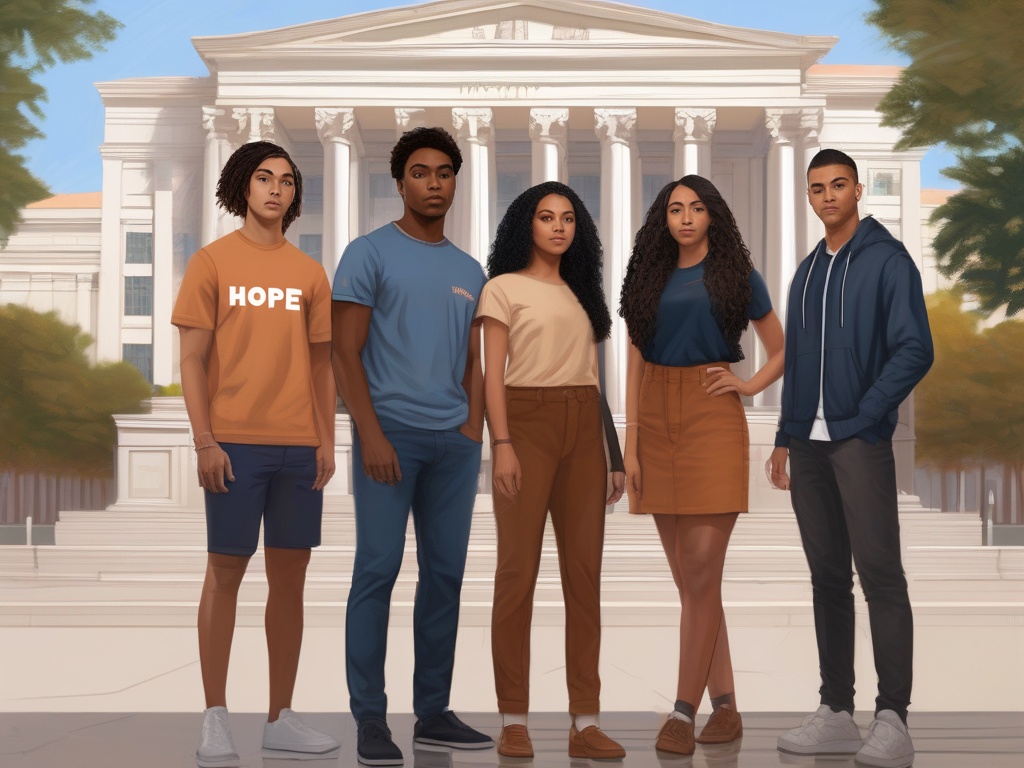
Unveiling the Future: Game-Changing DACA Regulations for 2024
The most notable shift in 2024 involves expanded eligibility criteria designed to include a broader spectrum of young immigrants. Previously, strict age limits and documentation requirements hindered many from qualifying. Now, new regulations relax these constraints, acknowledging the diverse circumstances of Dreamers. Additionally, renewal processes have been simplified and expedited, reducing bureaucratic delays that previously left many vulnerable to losing their protected status. This year also sees a robust effort to strengthen legal protections, ensuring that DACA recipients are shielded from deportation and discrimination more effectively.
These changes are not only administrative but symbolic of a renewed commitment to inclusion and justice. They signal a federal recognition that the contributions of Dreamers are invaluable to the fabric of American society and deserve unwavering support.
With these transformative regulations, the future is brighter for Dreamers seeking stability and opportunity. The new policies are expected to increase the number of eligible recipients and provide a clearer, more accessible route to legal status. This momentum could lead to further legislative and judicial victories, cementing a more inclusive approach to immigration policy. For Dreamers, this means greater security, enhanced opportunities for education and employment, and a step closer to realizing the American dream. As 2024 unfolds, the enforcement and expansion of these regulations will be critical, ultimately shaping a more equitable and resilient immigration system.
Eligibility Breakthroughs: Unlocking New Opportunities Under DACA in 2024
As the landscape of immigration policy evolves in 2024, the most compelling development lies in the groundbreaking advancements that expand who can qualify for DACA. Previously, eligibility was restricted by rigid age limits and stringent documentation, often leaving many deserving individuals on the sidelines. This year, however, the federal government has introduced reforms that are set to redefine the boundaries of opportunity, offering hope to a broader spectrum of young immigrants. These changes recognize the diverse life stories and circumstances of Dreamers, acknowledging that eligibility should not be confined by outdated criteria.
Significantly, the new regulations have relaxed age restrictions, allowing individuals who arrived at a young age and are now in their late twenties or early thirties to qualify, provided they meet other criteria. The inclusion of those with varied documentation proof—such as school records, employment history, or community engagement—serves as a testament to the administration’s commitment to fair access. This approach not only broadens the pool of eligible recipients but also fosters a more inclusive narrative that values the contributions of Dreamers regardless of their specific circumstances. Consequently, many who previously faced barriers due to age or paperwork hurdles now find themselves with a renewed pathway to secure legal status, paving the way for new educational and professional prospects.
Furthermore, the updated eligibility standards emphasize the importance of continuous residence. Applicants are now encouraged to demonstrate a longer, uninterrupted stay in the U.S., which aligns with the broader goal of recognizing their deep roots within American communities. This shift could potentially include individuals who faced earlier legal uncertainties or gaps in documentation, allowing them to present a comprehensive case for eligibility. Ultimately, these reforms symbolize a monumental step forward, transforming DACA from a limited program into a truly inclusive platform that champions the aspirations of Dreamers and unlocks unprecedented opportunities for personal and professional growth.
Transforming Lives: How Recent DACA Policy Shifts Empower Dreamers in 2024
As the landscape of immigration reform continues to evolve, 2024 marks a pivotal year for Dreamers, with policy shifts that are set to redefine their future prospects. These changes go beyond mere administrative updates; they represent a profound acknowledgment of the resilience and contributions of young immigrants who have called the United States home for years. The recent adjustments are designed to dismantle longstanding barriers, fostering a more inclusive environment where Dreamers can realize their full potential. The impact of these policies extends into various facets of life—from education and employment to community engagement—empowering individuals to rebuild their lives with greater certainty and hope.
One of the most striking aspects of the new regulations is the broadening of eligibility criteria. Previously, many deserving individuals faced restrictive age limits and rigid documentation requirements that often excluded them from participating in the program. Now, these barriers are being reimagined, allowing a wider array of Dreamers—those who arrived as children and have matured into young adults—to access the protections they deserve. This shift recognizes the diverse narratives of immigrant families and acknowledges that opportunity should not be confined by outdated standards. As a result, individuals who once found themselves on the periphery due to documentation gaps or age restrictions are now poised to step into the mainstream, opening up pathways for higher education, better employment prospects, and community leadership. This transformation signifies a commitment to fairness and inclusivity, ensuring that more Dreamers can contribute meaningfully to society without fear of deportation or discrimination.
The recent policy reforms also emphasize the importance of long-term residence and community ties, fostering a sense of belonging among Dreamers. By encouraging applicants to demonstrate extended, uninterrupted stays in the U.S., the government is affirming the deep roots many have established here. Such recognition not only solidifies their legal standing but also enhances their sense of security and stability. Moreover, these policies are designed to facilitate smoother renewal processes and legal protections, reducing bureaucratic hurdles that previously hindered access to benefits. The result is a more supportive framework that empowers Dreamers to pursue educational aspirations, secure meaningful employment, and participate actively in civic life. These policy shifts serve as a testament to a broader societal shift towards valuing diversity and inclusion, ultimately transforming lives by turning hope into tangible opportunities. As Dreamers are increasingly recognized for their contributions, their stories of resilience and achievement serve as powerful reminders of the transformative power of policy reform in shaping a more just and equitable nation.
